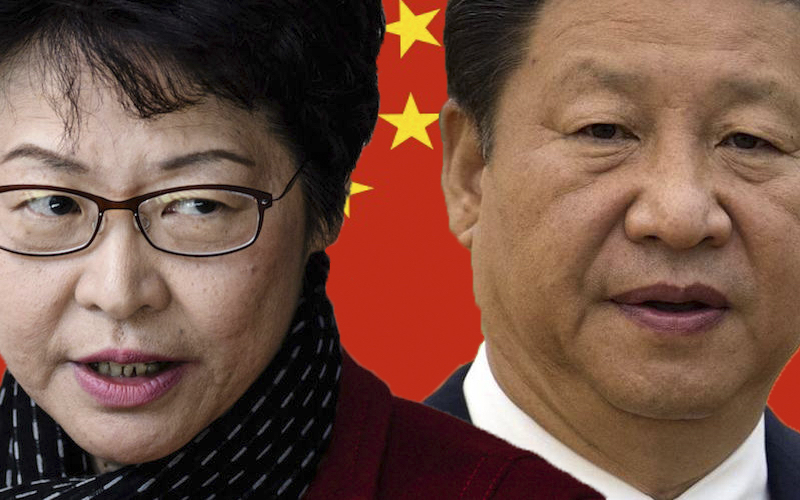
Hong Kong’s New Reality
President Xi Jinping visited Hong Kong to celebrate the twentieth anniversary of Hong Kong’s reunification with the Chinese mainland as a Special Administrative Region (SAR). In 1997 after the British withdrew from Hong Kong, the “one country, two systems-model” was unheard of, but now, it has become a success. The “one country, two systems-model” was first formulated by Chairman Mao in the 1960’s-1970’s when he considered the issue of Taiwan because there were two systems in Taiwan and the mainland. If China reunited with Taiwan, there must have been a mechanism and Chairman Mao compromised so that each side could keep its own system. In the 1980’s, Deng Xiaoping met with British Prime Minister Margaret Thatcher and put forward the idea of one country, two systems in order to solve the problem of Hong Kong.
Over the past twenty years, the “one country, two systems-model” has worked very well for the economy and autonomy of Hong Kong. Also, Hong Kong continues to be one of the premier business capitals of the world. Some of the factors that have led to Hong Kong’s economic success include, for example, rising GDP levels; in fact, over the past two decades, Hong Kong’s economy grew 6 percent. In addition, according to the Hong Kong Trade Development Council, Hong Kong is the world’s freest economy and it is the “world’s most services-oriented economy, with service sectors accounting for more than 90% of GDP.” In terms of Foreign Direct Investment, Hong Kong is the second largest recipient of FDI in Asia, and the continent’s “third largest source of FDI, after Japan and the Chinese mainland.”
Hong Kong has been a great success story for not only making itself competitive globally, but making Asia a more competitive region in the world. For the Chinese mainland, it serves as an entrepôt for foreign investment, trade, business, and external investment. What the “one country, two systems-model” concept has done so well over the years has been to enable Hong Kong to be a stable, prosperous country that can conduct business freely and compete on the international stage as one of the world’s strongest economies. For the people of Hong Kong, there are plenty of opportunities arising from development reform and opening-up to China. China is now an $11 trillion economy with a need for services, and Hong Kong is one of the leading service economies in the world. This provides Hong Kong with a lot of specific benefits in the creation of jobs, higher incomes for workers, and more business for corporations.
When the concept of one country, two systems was proposed, there was a fair degree of skepticism as to whether it would work. As mentioned before, if you look at the indicators, especially economic, the concept has worked for Hong Kong, but it has many challenges. Economically, even though Hong Kong has maintained a prosperous reputation as a financial partner, many experts are concerned about how long Hong Kong can continue to maintain a high degree of competitiveness among the world’s strongest economies like the People’s Republic of China, the United States, India, and Japan. In addition, since Hong Kong is one of the freest economies in the world, it offers a level playing field for global corporations and state-owned enterprises. Politically, there are still some concerns about maintaining political rights, protecting civil liberties, and transforming itself into a more democratic system. If you look at Hong Kong objectively, it has strong institutions that are aligned with the rule of law, Hong Kong also has an independent judiciary system, and there is a high degree of transparency in civil society for the people of this extravagant entrepôt.
One of the broad goals for the Chinese mainland has come through President Xi’s One Belt, One Road initiative (OBOR). Hong Kong is very encouraged and excited about being a part of this international project. In addition, Hong Kong has also joined the Asian Infrastructure Investment Bank (AIIB) as an active member since it is one of the premier financial centers of the world. Hong Kong can play a role in funding infrastructure projects. Its airport authority, as well as its railroad sectors, are some of the best operators for contributing to the demand of capital for financing infrastructure construction in Belt-Road countries. Hong Kong will also be able to facilitate the financing for the OBOR projects and allow companies to underwrite the risks of providing consultants with reliable project management and tax advice.
Not only can the OBOR initiative play a role in Hong Kong’s services, but it can also play a role in its trade and commercial sectors. In addition, Hong Kong is one of the busiest trade ports in the world. Many countries have used Hong Kong as a platform to buy and sell products that will open a lot of room for the harmonization of trade policies and opportunities for Hong Kong to ratify more free trade agreements with the Belt-Road countries. Hong Kong is also encouraging many people-to-people exchanges and providing funding for younger students to do educational and cultural exchanges. The One Belt, One Road initiative (OBOR) can be a strong engine for the future of Hong Kong as well as for the “one country, two systems-model.”
The relationship between mainland China and Hong Kong has had its tests, but the relationship overall has been very stable. Let’s not forget that Hong Kong was a region under British rule for 155 years from 1842-1997, and the handover of Hong Kong to China was a very significant moment in history. The handover was also significant in the way that it was done because the one country, two systems model was a very innovative proposal that overcame the challenges of British colonization and allowed the people of Hong Kong to establish closer ties with their mainland relatives.
Twenty years later, Hong Kong has advanced the rule of law (despite pro-independence movements from the opposition), cracked down on corruption, and maintained accountability which has proven to be a good track-record. The mainland has done everything it could to help Hong Kong in many ways to make sure that the transition from a British colony to a Special Administrative Region (SAR) of China was smooth, and both sides want to see the “one country, two systems-model” succeed because this is a creative way to unite Hong Kong with the mainland and provide inspiration for future social experiments within China. Beijing has tried in every way to make sure that Hong Kong’s society and economy function well, and this will continue going forward.

